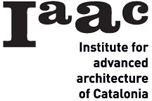The IAAC works beyond the conventional scales of territorial design, town planning, building or fabrication in designing a multiscale habitat. As in the design of ecosystems, each level has its own rules of interaction and relation, and at the same time must comply with certain parameters that pertain to the system as a whole. The Emergent Territories group works on projects that range in scale from the territory to the neighbourhood.
The idea of Emergent Territories is related to two issues: On the one hand, the IaaC is interested in understanding those countries and cities around the world with emerging economies and cultures that, by virtue of their regional or economic position, can contribute value to the planet as a whole. In recent years we have studied Brazil, Croatia, Taiwan, Romania, Colombia and Tunisia, or in the near futurewill be studying India and the countries of North Africa, the Persian Gulf and Sub-Saharan Africa. The work done in these countries seeks to identify the particular urban and territorial values of these places in order to construct more intelligent territories anywhere in the world, moving on from the Western idea that there is a single model of city (be it European or American) to work on the basis of more complex and more open values.
The other issue related to emergent territories has to do with the creation of intelligent territories that function in a multiscalar way, in order that the relationship between natures, networks and nodes can foment the ‘emergence’ of an urban intelligence. To this end we are interested in pursuing what we call ‘Hyperhabitat’ research as aprocess of developing a general theory of the multiscalar habitat that can be applied anywhere in the world and at any scale, as a basis for the construction of complete complex ecosystems.
This group also focuses on Barcelona as a site for ongoing urban experimentation, with a view to contributing to the discussions and refl ections in relation to the urban progress of the city.
Category Archives: Syllabus
Emergent Territories – SYLLABUS
IAAC works beyond the conventional scales of territorial design, town planning, building or fabrication in designing a multiscale habitat. As in the design of ecosystems, each level has its own rules of interaction and relation, and at the same time must comply with certain parameters that pertain to the system as a whole. The Emergent Territories group works on projects that range in scale from the territory to the neighbourhood.
The idea of Emergent Territories is related to two issues: On the one hand, the IaaC is interested in understanding those countries and cities around the world with emerging economies and cultures that, by virtue of their regional or economic position, can contribute value to the planet as a whole. In recent years we have studied Brazil, Croatia, Taiwan, Romania, Colombia and Tunisia, or in the near future
will be studying India and the countries of North Africa, the Persian Gulf and Sub-Saharan Africa. The work done in these countries seeks to identify the particular urban and territorial values of these places in order to construct more intelligent territories anywhere in the world, moving on from the Western idea that there is a single model of city (be it European or American) to work on the basis of more complex and more open values.
The other issue related to emergent territories has to do with the creation of intelligent territories that function in a multiscalar way, in order that the relationship between natures, networks and nodes can foment the ‘emergence’ of an urban intelligence. To this end we are interested in pursuing what we call ‘Hyperhabitat’ research as aprocess of developing a general theory of the multiscalar habitat that can be applied anywhere in the world and at any scale, as a basis for the construction of complete complex ecosystems.
This group also focuses on Barcelona as a site for ongoing urban experimentation, with a view to contributing to the discussions and refl ections in relation to the urban progress of the city.
Posted in Syllabus Comments closed
